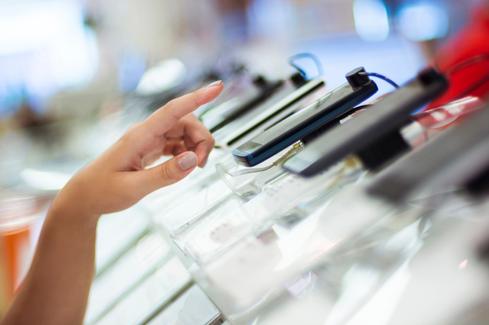LinkNYC Starts Delivering WiFi To NYC Pay PhonesLinkNYC Starts Delivering WiFi To NYC Pay Phones
First announced in 2014, the LinkNYC network, which looks to install WiFi access points in out-of-date NYC pay phones, started rolling out the first of these installations this week. However, some issues of personal information hover below the surface.


Best Mobile Tech Of 2015: Our Top 10 List
Best Mobile Tech Of 2015: Our Top 10 List (Click image for larger view and slideshow.)
LinkNYC, which first announced that it would it would transform out-of-date New York City pay phones into WiFi hotspots in 2014, has started to roll out the first of these installations in the Big Apple this week. Eventually, this public-private partnership plans to deploy 7,500 of these access points.
For those unfamiliar with LinkNYC, the organization is a hybrid of the NYC Mayor's Office of Technology and Innovation, the Department of Information Technology and Telecommunications (DoITT), and CityBridge, which is a consortium of technology and advertising companies that includes Titan, Qualcomm, Comark, and Transit Wireless.
The idea is pretty simple: Transform obsolete telephone technology with a modern flare that addresses the need for 24-hour, 365-day Internet connectivity in a city with 8.5 million residents, as well as millions of tourists.
The revamped kiosks began appearing Dec. 28. The Verge spotted one installation underway outside a Starbucks on 15th Street and 3rd Avenue, near Union Square in Manhattan. Another 500 or so access points are scheduled to appear by July 2016.
The hub points will require a few weeks of testing to be fully operational.
LinkNYC has noted that WiFi service will be gigabit speed, and should be useable between 150 to 400 feet away from each kiosk.
Although the organization promises gigabit speeds from the hubs, a ZDNet analysis of the 802.11ac spec puts the top speed (with the right modem) at more like 40 Mbps. If the modem in the portable device is not capable of handling the protocol, it will run at the maximum speed for which it is capable.
The 10-foot tall kiosks will be 11 inches thick and carry 55-inch digital screens on each side, according to LinkNYC. The digital screens will carry advertising, and those ads will pay for the costs of operation and needed upgrades during the hub's lifetime.
USB power-only outlets will allow recharging of mobile devices as well.
One may wonder if the personal information of users and their requests might also be a funding source. It's a thorny issue. LinkNYC notes on its website: "We take security and privacy very seriously and will never share or sell any personal information."
However, in my estimation, there is a huge loophole in that statement. As WiFi hotspots, the kiosks will no doubt be gathering information about users.
Kiosk users only need to enter a name and email to sign up for the WiFi service. But -- and this is a big but -- the network will likely be logging other data that your device volunteers. It seems only logical that some the companies involved in this endeavor may want to use that information to make decisions about which ads to show you.
So, it seems likely -- given the stated policies -- that aggregate information about users can and will be provided to advertisers, all in the name of targeting the effective reach of the ads.
After all, one of the companies that is involved in this endeavor is backed by Alphabet -- the newly minted parent company of Google.
[Read how one organization is bringing WiFi to remote corners of the world.]
Two companies involved in the creation of the hubs -- Control Group and Titan -- have merged into a newly formed entity called Intersection. A press release announcing the merger noted:
Intersection is the result of a merger between Control Group and Titan, key members of the team behind LinkNYC, the groundbreaking project to turn payphones into urban information hubs. It is owned by a consortium of investors including Sidewalk Labs.
Sidewalk Labs is backed by Alphabet. Does that mean Alphabet or Google is gathering personal information? Maybe or maybe not. When you're using one of these hubs, it's worth noting that your personal information might be out in the open.
**Elite 100 2016: DEADLINE EXTENDED TO JAN. 15, 2016** There's still time to be a part of the prestigious information Elite 100! Submit your company's application by Jan. 15, 2016. You'll find instructions and a submission form here: information's Elite 100 2016.
About the Author
You May Also Like






